Table of Contents
This article was written in collaboration with Juan Carlos Garcia from Kapawi Ecolodge and Trek Ecuador and Jools Sampson, founder of Reclaim Your Self.
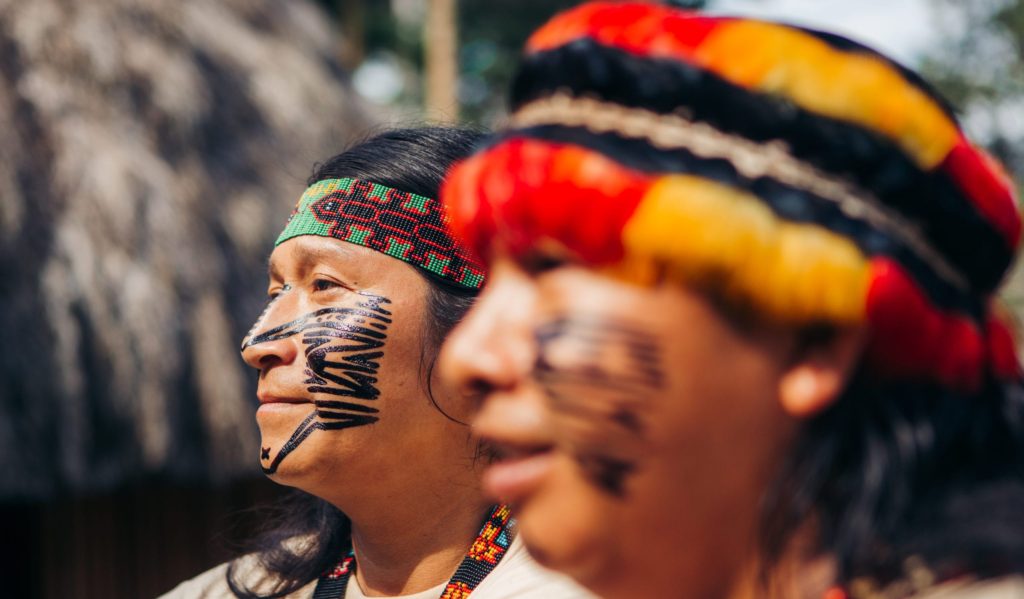
I haven’t been to many places where the focus on sustainable tourism benefitting everyone involved is so prevalent than in Ecuador. From glass jugs replacing plastic bottles in hotel rooms, a ban on plastic in the Galapagos Islands and a tourism industry that is widely locally owned and operated. Ecotourism in Ecuador comes naturally and seems to be the norm rather than the exception.
The Andean nation is one of South America’s smallest countries, yet comprises four distinctive climate zones – the Coastal Lowlands (La Costa), The Andes (La Sierra), The Amazon (El Oriente) and the Galapagos Islands. This makes the country one of the most diverse on the continent. Ecuadorians are proud of their country’s natural diversity and heritage and thus strive to protect those.
The Pachamama Mindset
The mindset of living in harmony with nature is not only deeply ingrained in the culture and beliefs but is also a part of Ecuador’s legislation. Since 2008, the country’s constitution includes a “Rights for Nature” chapter. The baseline is that nature in all its life forms has the right to exist, persist and regenerate. Furthermore, it constitutes that people have the legal authority to enforce these rights on behalf of Pachamama – Mother Earth. This was a crucial development against the background of an ever expanding oil industry forcing its way through protected lands of the indigenous peoples in the Amazon including Yasuni National Park, the ecologically most diverse place on earth.
This explains the continuous growth of eco accommodation in Ecuador. From awe inspiring haciendas in the Otavalo region and along the Avenue of the Volcanoes to luxury hotels in Quito to stunning eco lodges in the Amazon run by indigenous peoples – the vast majority of hotels and lodges are locally owned and operated, employing locals and serving produce of the region.
One of those lodges is Kapawi Ecolodge, a brilliant example of ecotourism in Ecuador.
Kapawi Ecolodge – An Ecotourism Pioneer
More than 25 years ago, Kapawi Ecolodge introduced social, economic, and environmental standards that later served as an example to other travel enterprises throughout Ecuador. After a three-year planning and construction process, Kapawi opened its doors in 1996, representing a pioneer ecotourism joint project in Ecuador’s Amazon Rainforest deep within the territory of the Achuar Indigenous Nation.
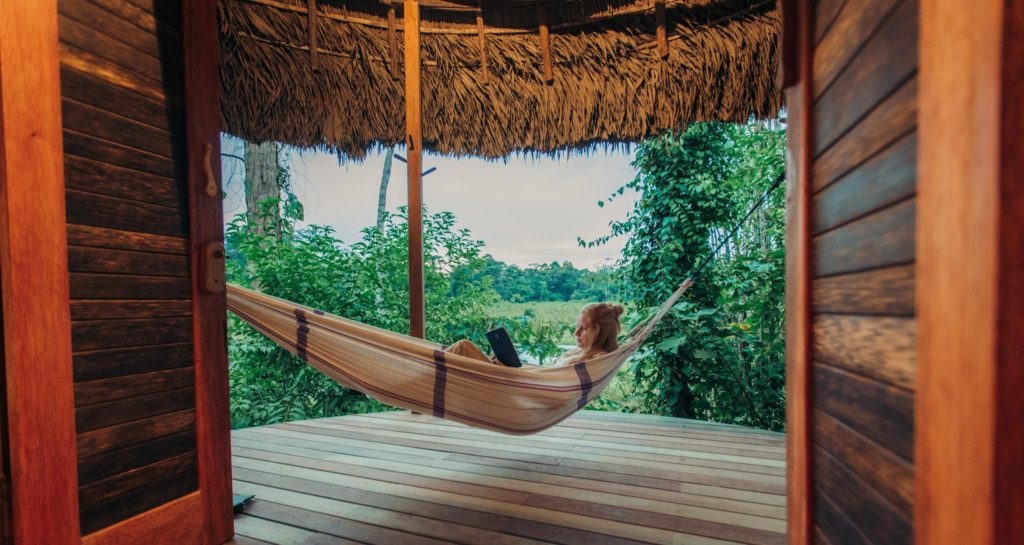
Kapawi Ecolodge offers travel experiences to the Achuar indigenous territory deep in the Amazon Rainforest that helps conserve biodiversity and preserve indigenous knowledge and practices. It creates employment and income for local Achuar families inhabiting one of the last tracts of Amazon Rainforest in southeast Ecuador.
To this day, Kapawi ecolodge remains fully owned, managed and operated by Achuar communities, training and employing 100% of its staff locally, and working with the local value chain to generate additional income for local producers and service providers. A percentage of every traveler’s income is reinvested in community education, health, conservation, food security, and sustainable farming. Since the very beginning, Kapawi Ecolodge has worked to maintain environmental standards and reduce its carbon footprint, for example, by relying 100% on solar energy.
The Achuar were the last indigenous group in Ecuador that was contacted by outsiders, in the late 1960s, and had only recently become legally recognised by the Ecuadorian government in the early 1990s.
The Achuar People
The Achuar are an indigenous group with presence in both Ecuador and Peru. Historically and geographically isolated, over centuries the Achuar migrated west from the eastern Amazon region into the more isolated areas of the Amazon basin, presumably also escaping the impact of the rubber boom in the 19th century. In 1941 their territory was divided as war broke out between Ecuador and Peru, and new international borders were defined. The Achuar in Ecuador remained in isolation from the outside, and their territory remained “terra incognita” until the late 1960s.
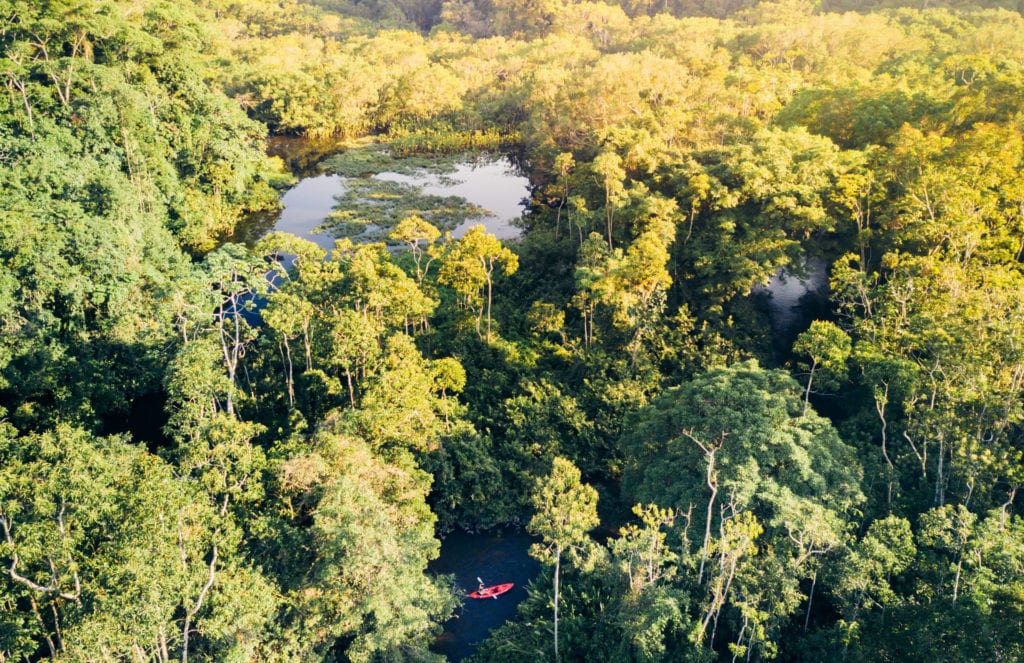
For centuries, the Achuar were self-sufficient and autonomous, sustaining their family groups through hunting and gathering from the forest, as well as gardening small agricultural plots. Once semi-nomadic people with constant violent wars between clans, as a result of contact with the missionaries in the 1970s and 80s, the Achuar began establishing small villages and communities. While their remote location largely protected them from colonisation, over the years and decades the Achuar experienced some degree of change to their ancestral way of life, while learning about the destruction of other Amazon Rainforest indigenous cultures and communities by the oil boom, large-scale cattle ranching and agriculture, and road construction.
Achuar Beliefs and Traditions
The Achuar’s ancient culture believes in multiple spirits from the forest that guide them in their relation with the forest and its creatures. According to traditional customs, education consisted in the transmission of cultural elements and practices. From an early age, Achuar men and women were taught about the forest, its plants and uses, and about fishing, hunting, harvesting, handicraft and tool making. Traditional fabric was made from the cotton plant. Women were taught to produce native products from the farm, while men were taught to hunt or build houses using only materials from the forest.
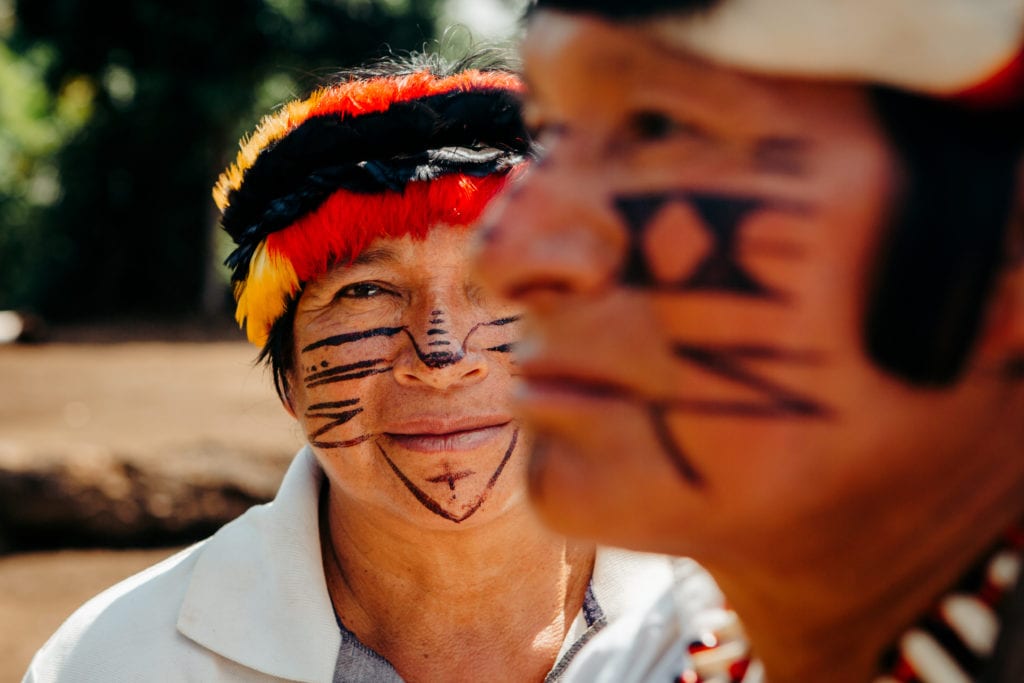
The Achuar culture protect this ancient wisdom based on rituals, dreams and visions and start the day very early, 3-4 am, drinking wayus tea while shring dreams and planning the day ahead. Wayus is a tea from a native plant, Ilex guayusa, which contains caffeine and antioxidant properties. The Achuar are people of the forest, of palms and medicinal plants.
Ecotourism and Kapawi - At the Heart of the Achuar Indigenous Nation
The Achuar also face many challenges. As with many indigenous groups, education, health, food security, territorial protection, biodiversity conservation, climate change, and sustainable production, are the most important development challenges for the Achuar nation. They maintain their fight for self-determination and territorial sustainability against mounting external threats, especially from extractive industries.
This is why ecotourism became an essential part of the Achuar Indigenous Nation’s plan to find sustainable alternatives to extractive industries, and to prevent them from replicating the development patterns present for decades in other indigenous territories of the Ecuadorian Amazon. As the Achuar indigenous nation built up its governing federation, ecotourism, more specifically Kapawi Ecolodge, became a flagship project to improve the Achuar’s capacity to defend their land against outside encroachment.
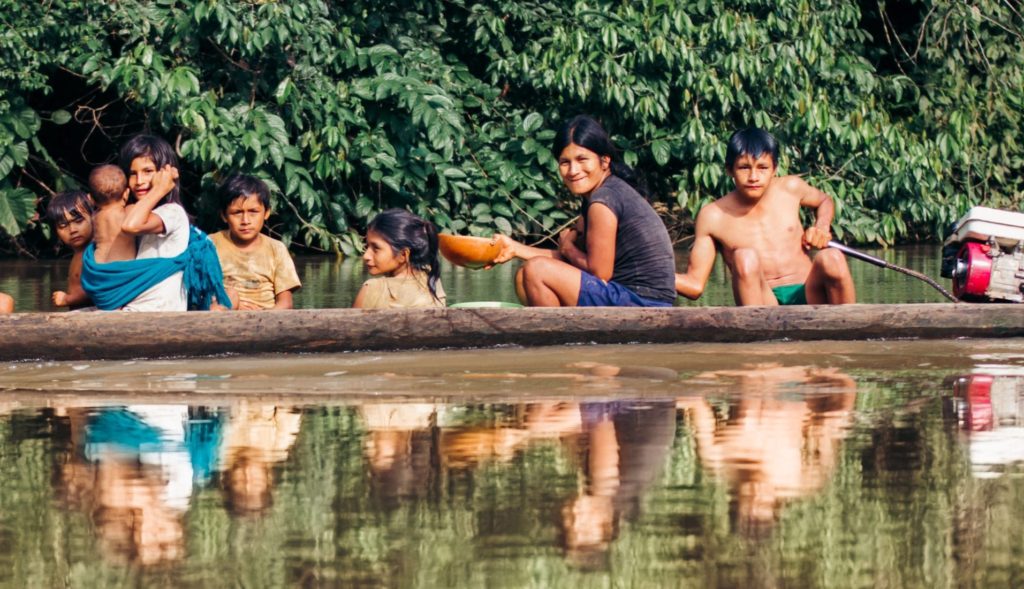
The Kapawi Ecolodge won several awards over the years, including being named by National Geographic Adventure Magazine among the Top 50 Eco-Lodges in 2009. Kapawi pioneered the use of traditional local architecture in its original design. Thanks in large part to the support of The Pachamama Alliance, a U.S.-based NGO, Kapawi finished a complete renovation of its cabins and grounds in August 2019, and also introduced new river, forest, and community activities. Its location offers a unique opportunity to spend time in nature and immerse in an indigenous culture of the Amazon Rainforest.
It wasn’t until 2020, however, that Covid’s impact on travel prompted Kapawi Ecolodge to further evolve to create a deeper connection between traveler and destination. To do this, Kapawi reinforced its work with partners and friends, and increased its collaboration with the local communities offering an even deeper immersion into the Achuar world.
One of these extended collaborations is a joint project with Reclaim Your Self, a UK-based retreat company run by founder Jools Sampson. Organising unique wellness and yoga retreats all over the world, her business, like most travel and wellness companies, has taken a huge hit over the past year. After graduating from the Transformational Travel Council’s Travel Designer Course in the midst of the pandemic, Jools used the still stand to place transformation and collaboration at the core of her future retreats.
One of those retreats is a 9-day wellness adventure in the Andes mountains and Amazon rainforest joining forces with Kapawi and Bettina’s Kitchen. The retreat company’s Wellness Journey to the Heart of the World brings its participants deep into Achuar indigenous territory to be immersed in the local culture and way of life. Guests spend time learning about local farming and cooking methods and creating a food and flavour exchange together with Bettina, the lodge cooks and Achuar community members. There is also plenty of time to discover the abundant rainforest wildlife with hiking and river adventures.
Kapawi Ecolodge - Lessons learned for other Ecotourism Enterprises
When the Achuar Nation was first established in the early 1990s, one of the first initiatives was the development and implementation of an integrated resource management plan for their territory. The overarching goal of this plan and subsequent initiatives was to ensure the long-term wellbeing of the Achuar territory and culture, and establish their right to self-determination at the local, national, regional, and international level.
Ecotourism in Ecuador was identified as one of the best options to change the development pattern observed in other areas of the Amazon. Oil exploitation from the Amazon region became Ecuador’s main economic driver, however, it did not improve the wellbeing of native communities, rather creating paternalism and dependency, while causing significant damage to biodiversity and cultural heritage. The Achuar wanted to challenge this patter and redefine sustainability goals. To this extent, the following principles were an essential part of the original Kapawi Ecolodge 1996 project, and 25 years later remain key sustainability objectives.
 Sustainable economic enterprises
Sustainable economic enterprises
Kapawi Ecolodge was the first project that created local income. Over the years, Kapawi created a region where 12 Achuar communities participate in the tourism value chain. Travel experiences are closely related to biodiversity, wildlife, and cultural immersion. Kapawi Ecolodge has played a key role over the years in reinforcing the fact that biodiversity conservation and cultural preservation can become economic enterprises. In the last years, emerging concepts such as bioeconomy, or the sustainable use of forest resources, have deepened and expanded the potential benefits and opportunities of applied ancient rainforest knowledge.

Focus on technological advancements
The right technology can help improve local practices and help reduce the human carbon footprint. Kapawi Ecolodge was the first project in Ecuador to rely 100% on solar energy, a great feat by 1990s industry standards. Kapawi also introduced cleaner outboard engines and waste management practices. With growing communities, water, energy, and environmental management procedures and standards need to grow beyond a specific ecotourism project and become standards in community management. This is challenging due to costs and available funding sources, however, they are objectives embraced by the Achuar Nation and its partners.

Governance, collaboration and local leadership
One of the main objectives of ecotourism is to strengthen the Achuar’s capacity and ability for self-determination to defend the territory against outside encroachment and continuous threats from extractive industries (oil road, deforestation, cattle ranching remain permanent threats). Beyond its ecotourism operation, and especially after Covid, Kapawi Ecolodge needs to become a hub for conservation, research, and capacity building processes. Kapawi’s infrastructure and equipment will be increasingly used for higher social and environmental purposes beyond travel.
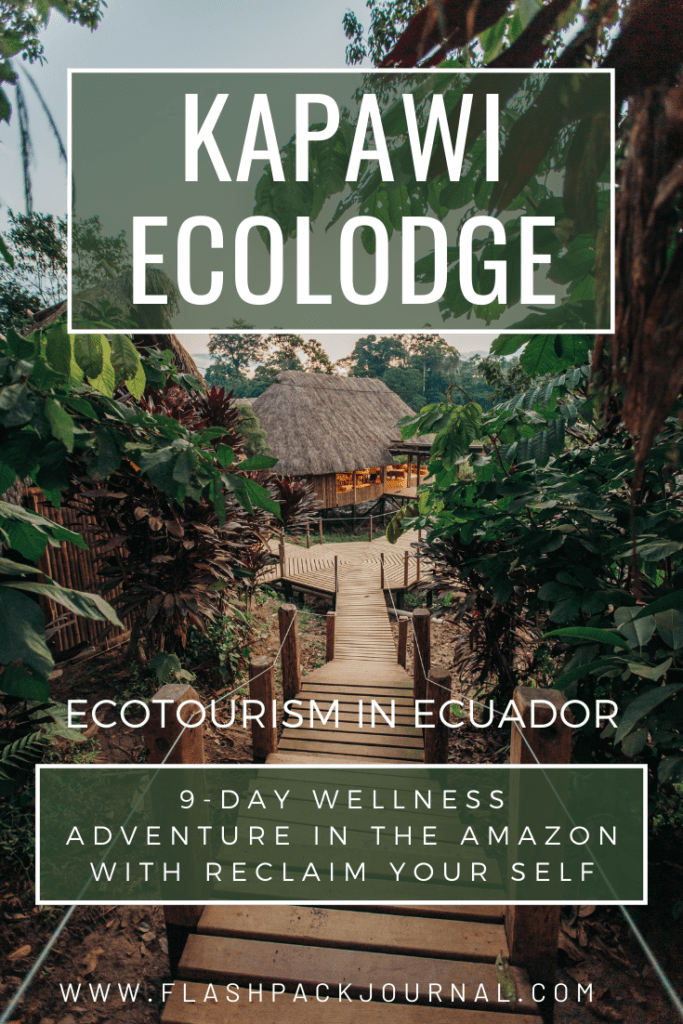
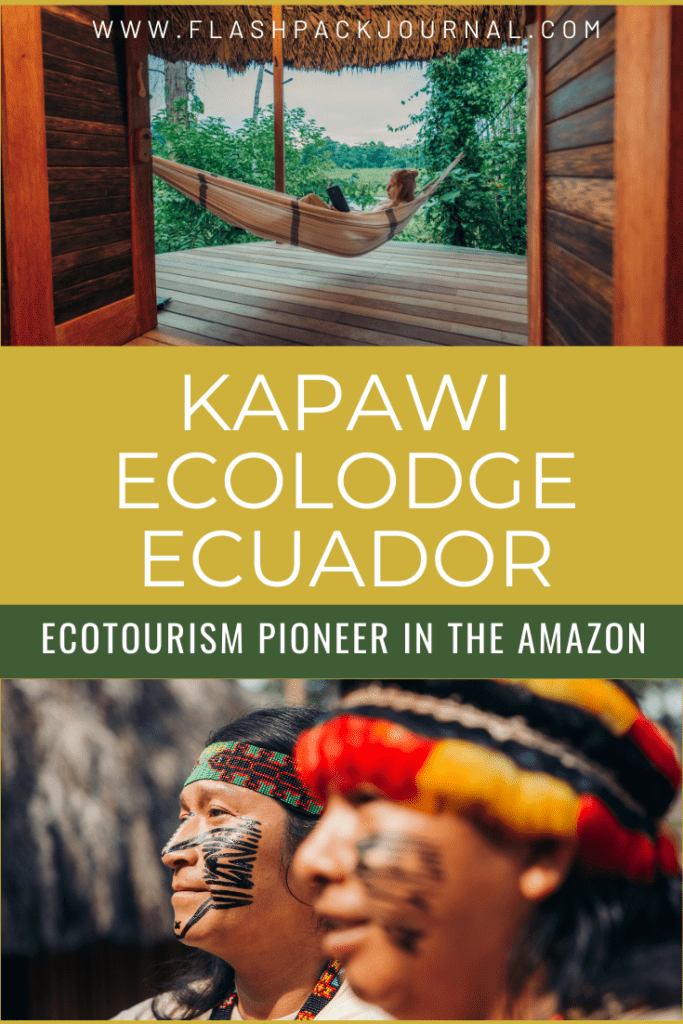
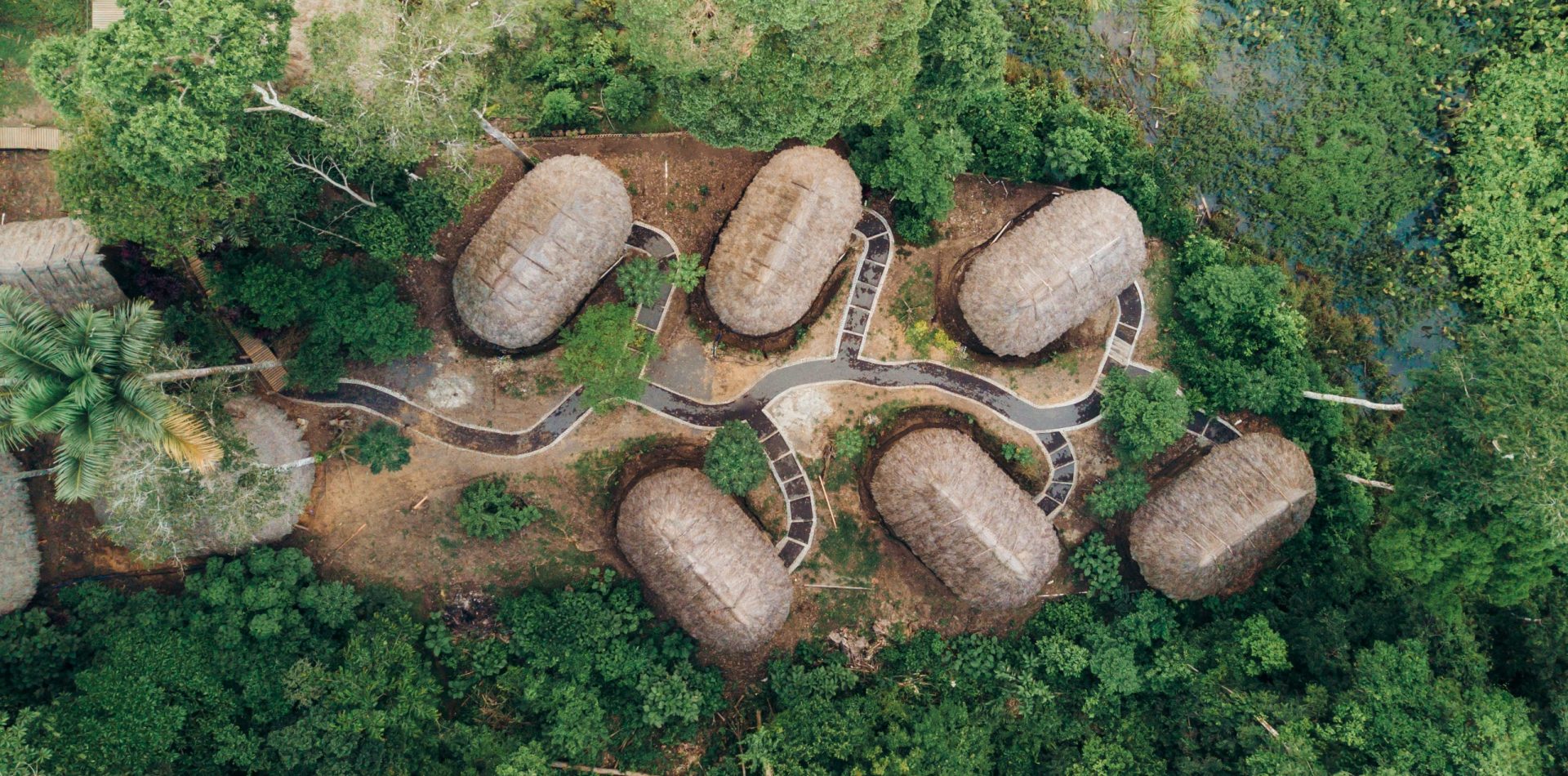
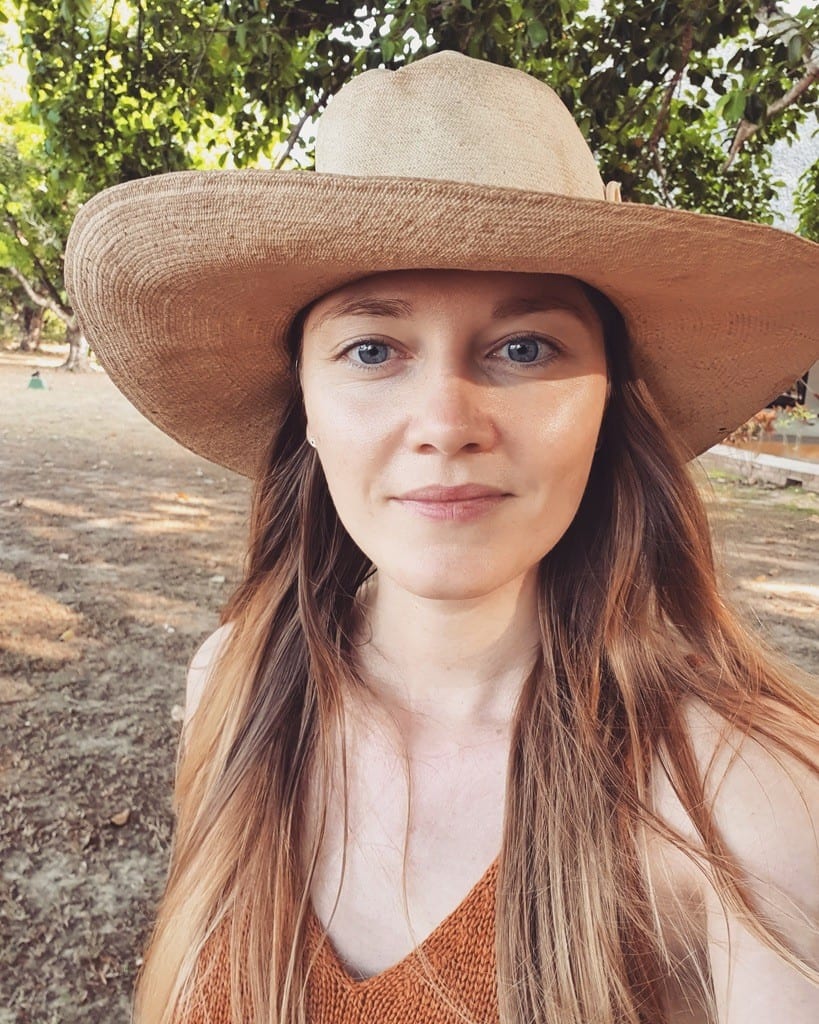

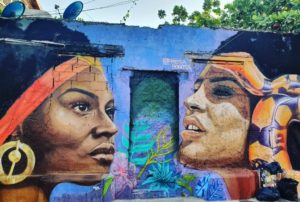
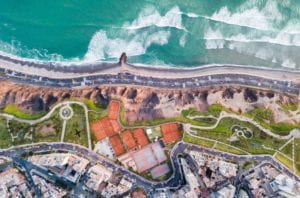
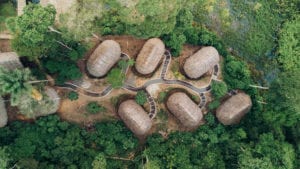
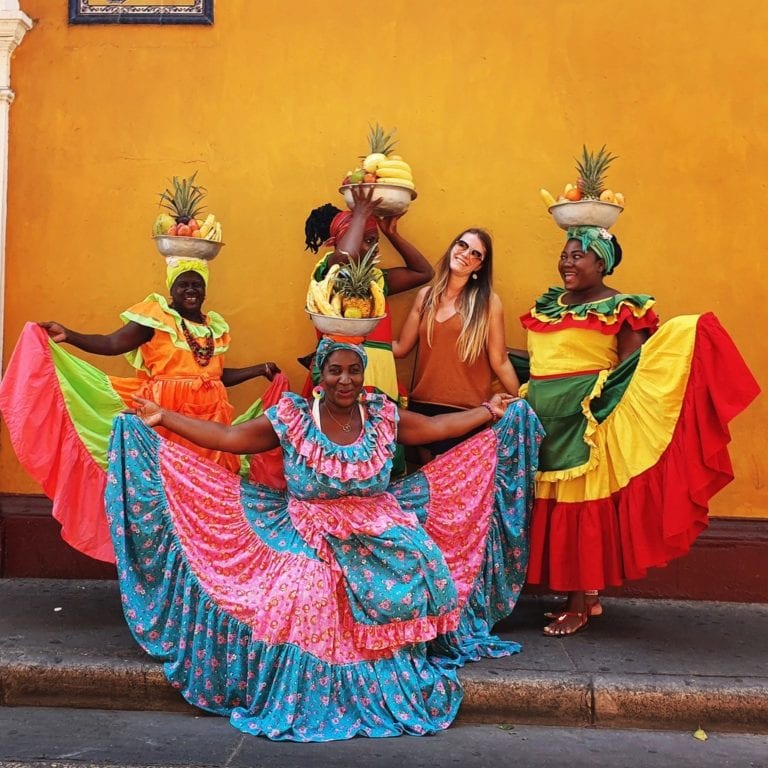
No Comments